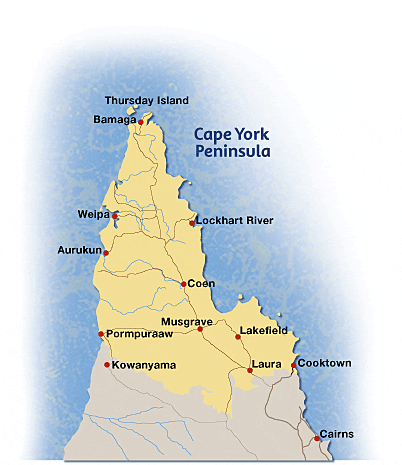TENSIONS are rising between Cape York cattle producers and National Parks, with station owners given until the end of this week to remove branded livestock from parks before they are seized by the Department.
 The Cape is marginal cattle country and has seen a major change of land use in recent decades, with several cattle stations purchased by Governments to be converted into National Parks.
The Cape is marginal cattle country and has seen a major change of land use in recent decades, with several cattle stations purchased by Governments to be converted into National Parks.
The Federal Government is hoping to continue the trend, commiting to a target of having 30 percent of the country’s land set aside for conservation by 2030.
Beef Central has previously reported on landholder calls for better resourcing of National Parks and concerns around pest control and fire management.
One of the main issues in the Cape relates to the management of cattle across boundary fences after the department announced earlier this year that it had plans to cull cattle inside National Parks.
It has become an election issue in the State seat of Cook, with Katters’ Australia Party and Liberal National Party candidates calling for changes.
Call for Parks to work collaborate with landholders
LNP candidate David Kempton told Beef Central that National Parks’ needed to be more collaborative with landholders. He said one of the biggest concerns is about the time limits the department was putting on landholders.
“When the National Parks buy the properties, they are almost always destocked. But the problem we face is that they are also unfenced and, depending on the season, a large number of any station owners cattle can end up in the National Park,” he said.
“They have to organise helicopters, they have to organise trucks, there’s fires and you can’t just muster in one area without the doing the whole property. All of us have to work together, but National Parks have just gone the war with the neighbours – no one else can shoot cattle.”
Mr Kempton said the concerns about were misguided considering the management of other issues.
“They are not doing much about the pigs and weeds on these properties,” he said.
“If they are so worried about the cattle, then they should be managing the place to a much higher degree than what they do. We have one of the lowest expenditures/ha on National Parks in Australia.”
Producer group formed
KAP candidate Duane Amos has also been busy trying to raise the issue by helping form a group called Cattle Growers Cape York.
Mr Amos took to Facebook to announce the formation of the group and denounce the cull of livestock. He said it often takes 80 days to get a permit to muster cattle in parks.
“Do you not forget these cattle have owners, the Cattle stations employs locals, the meat feeds the cities and to rub salt into the wound of owners you don’t provide compensation for the animals destroyed that you don’t own.
“Imagine the same process to recover your dog from a neighbour or property in a city? Or having it destroyed because you’re not allowed to recover your best mate, feed it and then after death let it rot where it falls?
“Where are the animal activists now or doesn’t your electric vehicle get to rural areas for a protest?”
Management program targeting unbranded cattle
In a recent press release announcing that it had issued mustering permits, which were set to end on October 6, the Department of Environment, Science and Innovation did not mention culls.
It said it was allowing Aboriginal Land Trust rangers to muster unbranded cattle for commercial sale, with the proceeds going directly into the management of the national parks.
Queensland Parks and Wildlife Service Cape York manager Nick Smith said the management program would begin later this year.
“The management program will target the remaining unbranded cleanskin cattle and feral pigs in the national parks,” he said.
“Cattle can cause extensive damage to the natural and cultural values of our national parks by trampling vegetation, impacting on water bodies and competing with native animals for food.
“It is estimated that cattle populations can increase by around 40% annually, and our management program has the support of landholders, DAF, environmental groups and Traditional Owners.
“The QPWS encourages neighbouring landholders who have not yet applied for a mustering permit to discuss cattle management with their local Ranger in Charge.”
